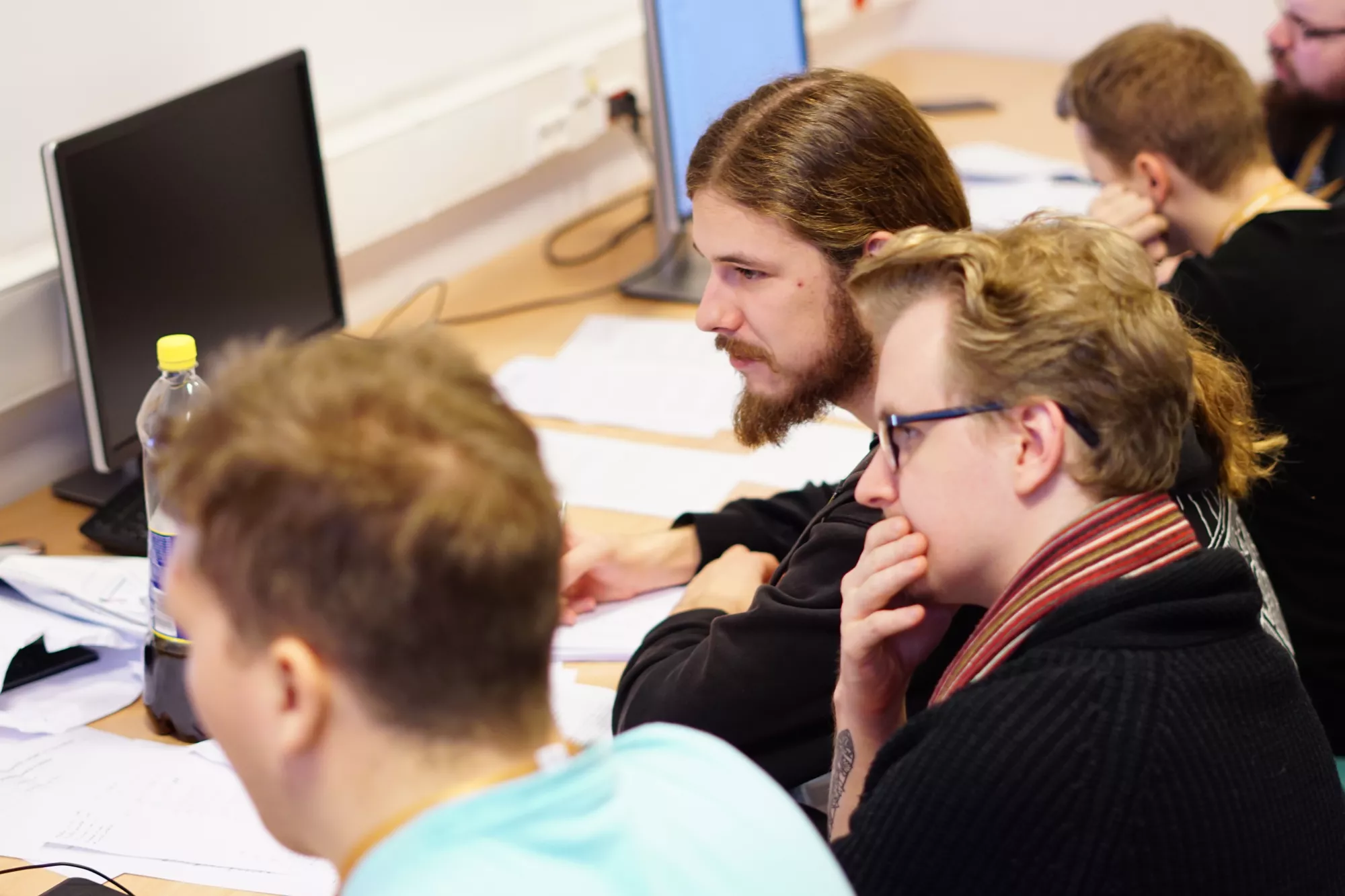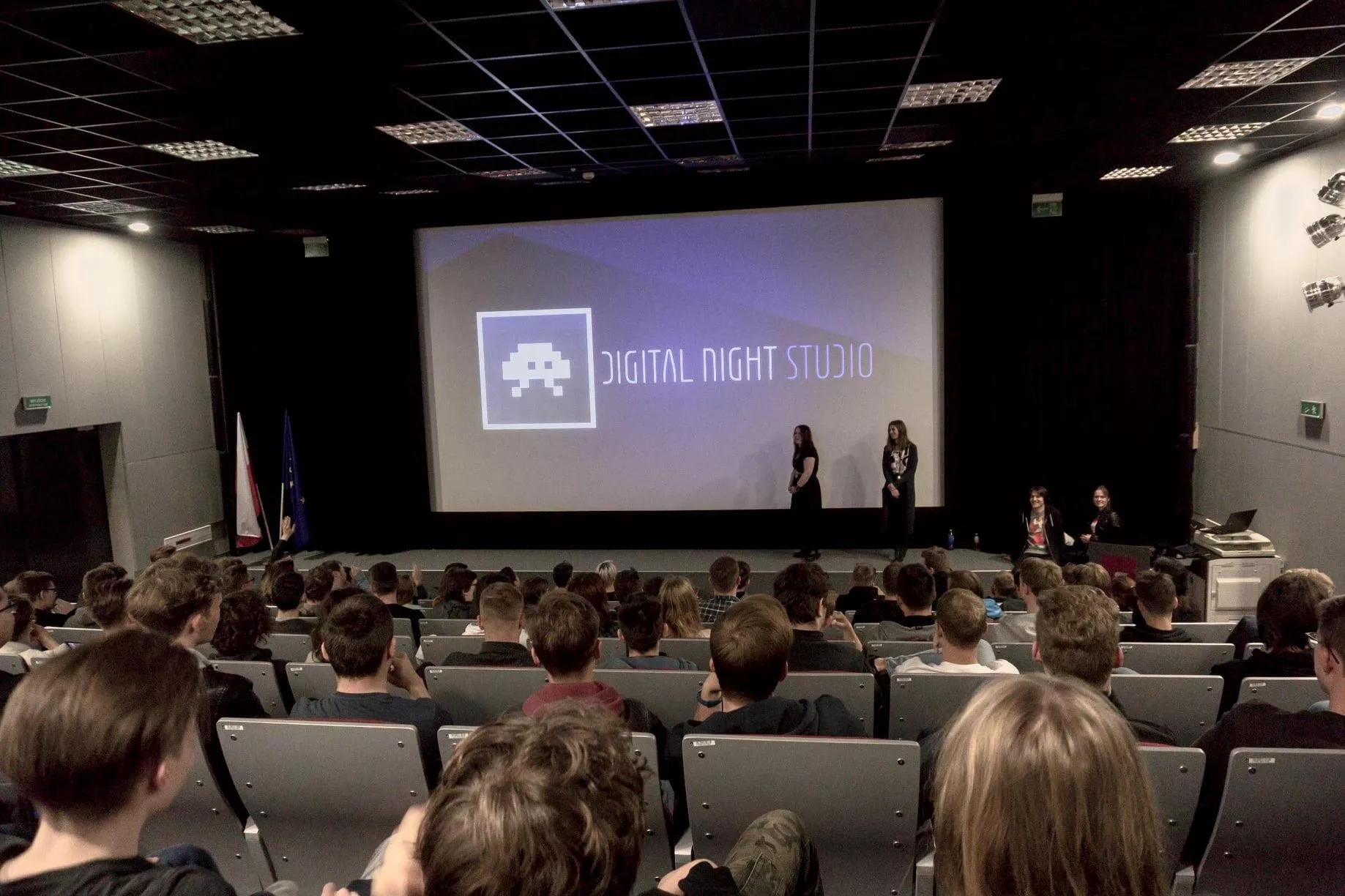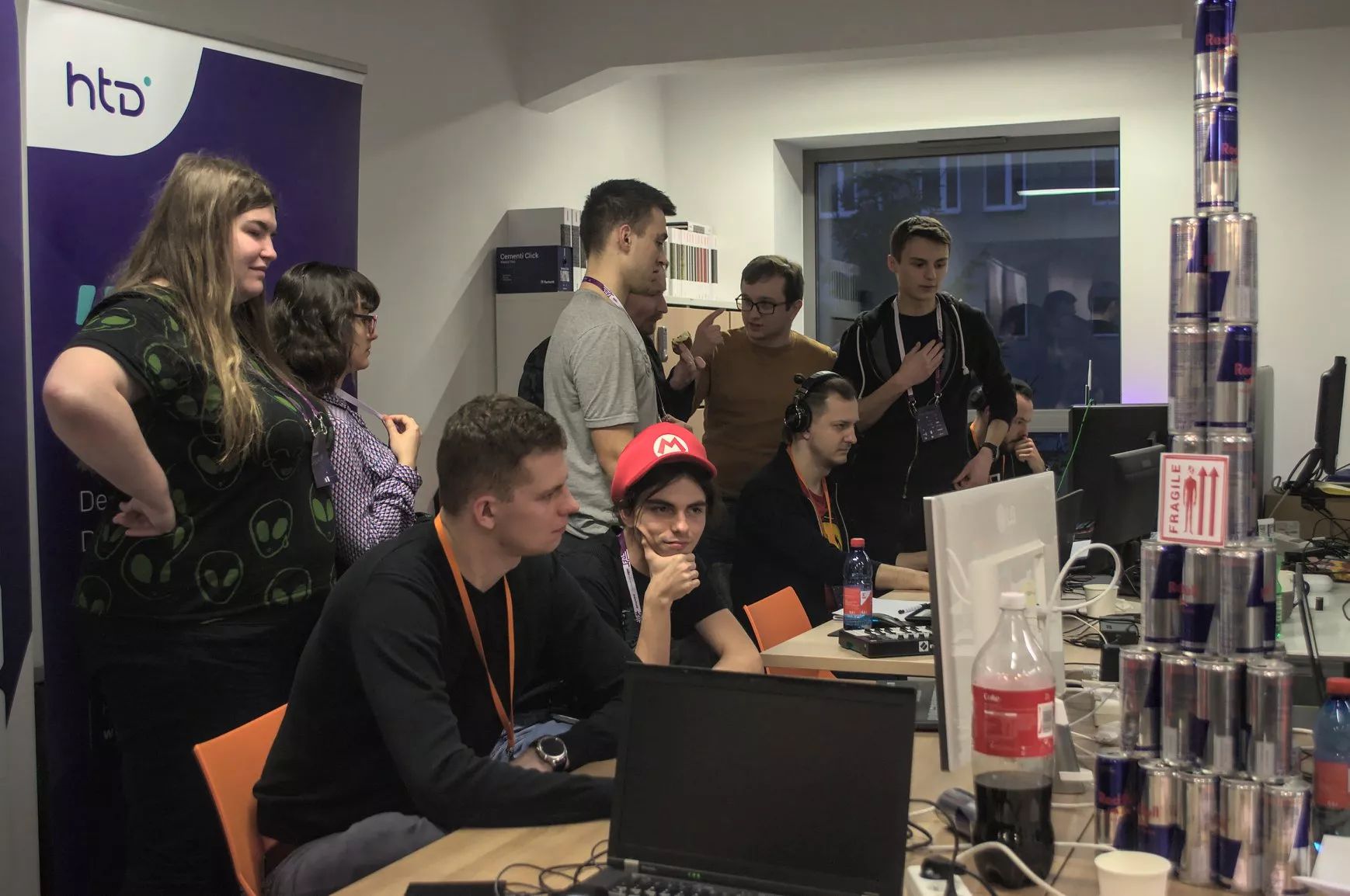Although their full name is associated with cabaret, and there is no shortage of funny situations in the course of work they do, KINo deals with advanced technologies that are on the borderline of various IT fields. Mateusz Majchrzak, who became infatuated with it when he was still a high school student, talks about why it's impossible to get bored in the Club of Computer Anxiety- KINo.
The research group has a long tradition, and thus has had many members throughout TUL's history. How did you come up with the name and what is the structure of your group?
The research group is very old, and the original founders are PhDs who now teach at TUL. It seems to me that they are the only ones who really know the origin of the name. KINo was created so that interested students could expand their knowledge of computer science in a variety of areas.
What activities can members of the group take part in?
We have five sections, so there really is something for everyone. KINo includes: Game Developers, Artificial Intelligence, Graphics, Algorithmic, .NET sections. These sections appeared and disappeared over the years depending on who wanted to deal with what. Not all sections were created at the same time. Artificial intelligence, for example, was only established in, I think, 2018, while the graphics section was reactivated last semester because there was a person willing to take on the task. Each section also has a separate leader who organizes activities for the meetings.
As chairman of KINo, I monitor what happens in each section and help if there are problems. I also deal with the usual organizational matters. I am not specifically active in sections myself, but I am a member of one of them - Digital Night Studio (Game Developers Section), where we create our own projects and ultimately games.
You were the hero of our series "Multiply the opportunities" and it was there that you talked about, e.g., your desire to design computer games and your passion for painting. Does the research group, or indeed your section, develop more in this area than the field of study itself?
When I came to university, it was mainly through the KINo that I was able to develop this passion for game development, but of course, when the specialization at university started, that's where I started to be active in this area as well, even from a different angle. I started my adventure in computer science with the workshops that were run at TUL when I was still in high school. During the workshops, members of KINo talked about the basics of game development. After joining TUL, I immediately started attending meetings of the Digital Night Studio section. I have been an active member for about three years, while I have been chairman for two years.
Your activities require more work than studying?
It can be intense, especially as the function of chairman is a responsible task. However, I believe that combining the university and our activity is not something impossible. It is true that studying full-time at TUL requires a lot of commitment, but my schedule and proper time management allow me to fulfil myself here. KINo and acting in it certainly fascinates me more, but I spend more time studying. However, the research group is always in my thoughts, and I am happy to be part of it.
What are you currently doing at KINo?
The sections operate separately. Artificial intelligence or algorithmic, for example, focus on participation in competitions, while game developers create projects that go into competitions, but other than that, classes in this section alternate – once with lectures that explain specific issues to participants, and another time with project classes where you can consult on the progress of your activities.
I have seen a video in which you and your deputy Filip Izydorczyk present the computer games developed within the research group. What is the process of creating such a game?
If we design a game, collaboration between sections begins, mainly between game developers and graphic designers. The process is long, but creative. Once you have an idea, you move on to designing the mechanics and premise of the game, and then you implement this in the appropriate software. The process is very dynamic. In the graphics section, participants learn to make something that can be used in the games section to create models. We are doing a variety of projects, so there are many opportunities for development.
The creation process is a lot of fun, although it does not shy away from the problems that arise at each stage. I have a favorite anecdote that I often tell. It concerns teamwork and communication. In one game we created, we represented real images in virtual 3D spaces. The game consisted of puzzles that were solved in the world of a particular painting. Among the works of arts, we selected was Salvador Dalí's painting The Persistence of Memory. There are twisted or spilt clocks on it, and one of them is leaning against a strange object. This shape is hard to compare to anything else, after all it is surrealism. Temporarily, we called this object the 'cow' and then asked a graphic designer to make us a model of it. We got it, of course, but it was an actual animal, not our shape. (laughs)
What are you working on now and what are you proud of?
Some of the team joined the Power project from TUL, which allows them to pursue a game project together with mentors from the industry. We joined our operations with the Digital Night Studio. We go to project meetings, discuss progress. The concept of this game is that we are the energy inside the computer, and we manage the current, passing the energy on. This is what co-operative puzzle solving is all about – one player can give energy to the environment and the other can only receive it. Participation in the project is voluntary, there is no pressure. We are proud of all the people who take on any extra activity and want to create something themselves.
You are very committed. How many members do you have and what was your activity in the pandemic?
The largest section is that of game developers, with up to 10 project teams. However, if you add up all the KINo members, there could be around eighty. The number fluctuates because there are more new people at the beginning of the academic year, but this changes over time. Any student can join us at any time. To do so, write to the chairman of the section in which you are interested, email addresses are provided on our website. Of course, we encourage you to start your student research group adventure at the beginning of the semester, as it is then easier to implement the project and even build a team.
As far as the pandemic was concerned, there was no problem switching to remote mode because we operate on computers. Whatever the modus operandi, we organize team-building meetings and try to keep the atmosphere as good as possible. We already form such a small family.
Has being active in SKN KINo helped you in anything?
Here, we acquire various types of competences, including interpersonal skills. If we become team leaders, we learn management. We also develop teamwork skills and gain knowledge in the key areas of the section. We learn about valuable and necessary programs. If someone enrolls from the very beginning, they get to know the programs much earlier than the rest of the students in their year. In many ways, we can even develop more in the group than at university, because we have more freedom of choice when it comes to the subjects we want to pursue.
And what does this look like in the context of the labor market?
Through ongoing projects, we can gain our first portfolio entries. Activities in a research group give us a great advantage in the job market, so it is something to boast about at a job interview. It helped me get my first job in the industry. I am currently starting a new adventure myself at one of the game development companies.
I also know that graduates of the research group often get jobs in the field of games. Often, for example, at the Team Computer Game Development Competition, in which our games take part and almost every year take the top places, we meet people from TUL who are on the jury or who work in specific companies. The games industry is indeed growing in Lodz, but a lot of people are also working in other Polish cities. I have also heard of foreign cases in the United States.
Interviewed by: Paulina Krygier
Photos: Jacek Szabela, private archives of the interviewee


